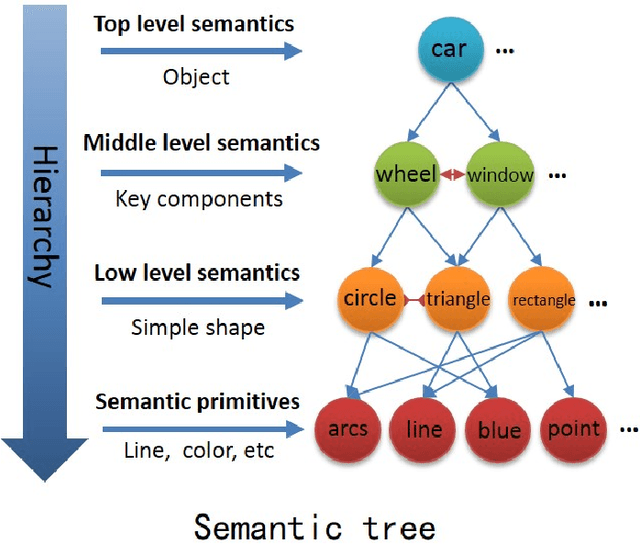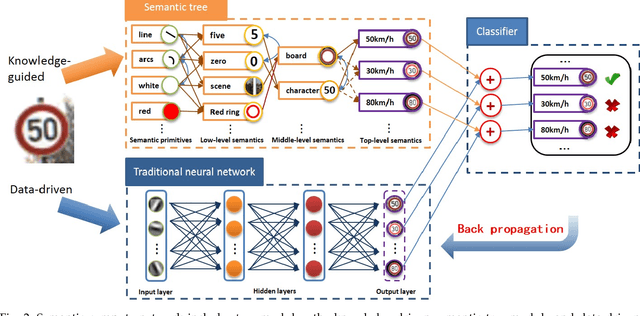Knowledge-guided Semantic Computing Network
Paper and Code
Sep 29, 2018



It is very useful to integrate human knowledge and experience into traditional neural networks for faster learning speed, fewer training samples and better interpretability. However, due to the obscured and indescribable black box model of neural networks, it is very difficult to design its architecture, interpret its features and predict its performance. Inspired by human visual cognition process, we propose a knowledge-guided semantic computing network which includes two modules: a knowledge-guided semantic tree and a data-driven neural network. The semantic tree is pre-defined to describe the spatial structural relations of different semantics, which just corresponds to the tree-like description of objects based on human knowledge. The object recognition process through the semantic tree only needs simple forward computing without training. Besides, to enhance the recognition ability of the semantic tree in aspects of the diversity, randomicity and variability, we use the traditional neural network to aid the semantic tree to learn some indescribable features. Only in this case, the training process is needed. The experimental results on MNIST and GTSRB datasets show that compared with the traditional data-driven network, our proposed semantic computing network can achieve better performance with fewer training samples and lower computational complexity. Especially, Our model also has better adversarial robustness than traditional neural network with the help of human knowledge.
 Add to Chrome
Add to Chrome Add to Firefox
Add to Firefox Add to Edge
Add to Edge